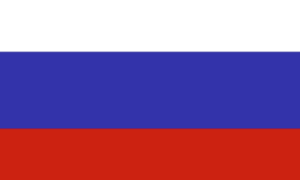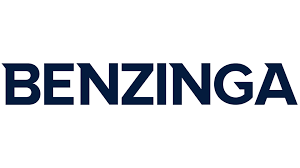Table of Contents
- 1 Government Fees Structure for Foreign Branch Registration
- 2 Professional Service Charges
- 3 Registration Process and Timeline
- 4 Sector-Specific Additional Costs
- 5 Recurring Annual Costs
- 6 FAQs About Foreign Branch Registration Costs in Nepal
- 6.1 What is the total government fee for registering a foreign branch in Nepal?
- 6.2 How long does the entire registration process take?
- 6.3 Can foreign branches repatriate profits from Nepal?
- 6.4 Are there any minimum capital requirements for foreign branches?
- 6.5 What are the annual compliance costs for maintaining a foreign branch?
- 6.6 Is professional assistance necessary for the registration process?
- 6.7 What banking documents are required to open a corporate account for a foreign branch?
Foreign companies seeking to establish a presence in Nepal through a branch office must navigate various regulatory requirements and associated costs. The process involves multiple government agencies, including the Office of Company Registrar (OCR), relevant Ministry, Tax Office, and local Ward Office. This article provides a comprehensive breakdown of the costs, fees, and procedures involved in registering a foreign branch in Nepal.
Government Fees Structure for Foreign Branch Registration
The registration of a foreign branch in Nepal involves several mandatory government fees that must be paid to different authorities. These fees are established by Nepali law and are subject to periodic revisions by the government.
Office of Company Registrar (OCR) Fees
The Office of Company Registrar is the primary authority for registering a foreign branch in Nepal. As per the Company Act, 2063 (2006), foreign companies must pay specific fees to establish their branch office:
- Registration fee: NPR 20,000
- Application processing fee: NPR 5,000
- Certificate issuance fee: NPR 2,000
- Documentation verification fee: NPR 1,000
These fees are payable directly to the OCR and must be submitted along with the registration application. The Company Act mandates that these fees must be paid in Nepalese currency through the designated payment channels.
Local Ward Office Fees
Every business entity operating in Nepal must register with the local Ward Office where the branch will be physically located. The fees for this registration include:
- Business registration fee: NPR 2,000-5,000 (varies by location and business category)
- Annual renewal fee: NPR 1,000-3,000
- Location verification fee: NPR 1,000
The Local Self Governance Act, 2055 (1999) empowers local authorities to collect these fees, which contribute to local development and administrative costs.
Ministry Approval Fees
Foreign branches require approval from the relevant ministry depending on their sector of operation. The fees associated with this approval process typically include:
- Application fee: NPR 10,000
- Approval certificate fee: NPR 5,000
- Sector-specific regulatory fees (varies by industry)
The Foreign Investment and Technology Transfer Act, 2075 (2019) provides the legal framework for these approvals and associated fees.
Tax Registration Fees
Registration with the Inland Revenue Department for tax purposes involves the following fees:
- Permanent Account Number (PAN) registration: NPR 1,000
- Value Added Tax (VAT) registration (if applicable): NPR 2,000
- Tax clearance certificate: NPR 1,000
These fees are mandated under the Income Tax Act, 2058 (2002) and the Value Added Tax Act, 2052 (1996).
Professional Service Charges
Beyond government fees, foreign companies typically require professional assistance to navigate the complex registration process in Nepal.
Legal and Consultancy Fees
Professional service providers charge approximately USD 1,200 for comprehensive assistance with the branch registration process. This typically covers:
- Documentation preparation and review
- Representation before government authorities
- Compliance advisory services
- Translation of foreign documents
- Notarization and authentication services
The exact service charges may vary based on the complexity of the registration, the foreign company’s country of origin, and specific requirements of the business sector.
Banking and Financial Services Costs
Opening a corporate bank account for the branch operation involves certain costs:
- Account opening fee: NPR 5,000-10,000 (varies by bank)
- Minimum deposit requirement: NPR 100,000-500,000
- International transaction setup fee: NPR 2,000-5,000
The Banking and Financial Institution Act, 2073 (2017) regulates these banking services and associated fees.
Registration Process and Timeline
The registration process for a foreign branch in Nepal follows a sequential procedure involving multiple government agencies.
Pre-Registration Requirements
Before initiating the formal registration process, foreign companies must prepare:
- Board resolution authorizing branch establishment in Nepal
- Parent company’s registration documents (authenticated and translated)
- Proposed business plan for Nepal operations
- Financial statements of the parent company for the past 3 years
- Power of attorney for the authorized representative in Nepal
These requirements are stipulated in the Company Act, 2063 (2006) and the Foreign Investment and Technology Transfer Act, 2075 (2019).
Step-by-Step Registration Procedure
- Obtain approval from the relevant Ministry based on the business sector
- Submit application to the Office of Company Registrar with required documents
- Pay the prescribed registration fees at OCR
- Receive the branch registration certificate
- Register with the Inland Revenue Department for PAN/VAT
- Register with the local Ward Office
- Open a corporate bank account
- Apply for industry-specific licenses (if applicable)
The entire process typically takes 30-45 days, assuming all documentation is in order and there are no regulatory complications.
Post-Registration Compliance
After successful registration, foreign branches must comply with:
- Annual returns filing with OCR
- Tax filings with Inland Revenue Department
- Local business permit renewals
- Repatriation approvals for profits (through Nepal Rastra Bank)
The Foreign Exchange Regulation Act, 2019 (1962) governs the repatriation of profits and other foreign exchange transactions.
Sector-Specific Additional Costs
Different business sectors may incur additional regulatory costs for branch operations in Nepal.
Banking and Financial Services
Foreign banks establishing branches in Nepal face additional regulatory requirements:
- Nepal Rastra Bank licensing fee: NPR 500,000
- Minimum capital requirement: As prescribed by Nepal Rastra Bank (typically several million USD)
- Annual supervision fee: 0.1% of paid-up capital
These requirements are established under the Banks and Financial Institutions Act, 2073 (2017).
Special Requirements for Financial Institutions
Foreign financial institutions must comply with:
- Fit and proper test for key personnel
- Enhanced compliance reporting
- Additional security deposits
- Special audit requirements
Manufacturing and Industrial Sectors
Manufacturing branches must obtain:
- Department of Industry approval: NPR 10,000-50,000 (based on investment size)
- Environmental clearance: NPR 20,000-100,000
- Factory operation license: NPR 15,000-30,000
The Industrial Enterprises Act, 2076 (2020) provides the regulatory framework for these requirements.
Service and Consulting Sectors
Service-oriented branches typically require:
- Professional council registrations (where applicable)
- Service tax registrations
- Intellectual property protections
Recurring Annual Costs
Foreign branches must budget for recurring annual costs to maintain their legal status in Nepal.
Annual Renewal Fees
- OCR annual return filing fee: NPR 5,000
- Ward Office business renewal: NPR 1,000-3,000
- Sector-specific license renewals: Varies by industry
Compliance and Reporting Costs
- Annual audit fees: NPR 50,000-200,000
- Tax filing and clearance: NPR 5,000-10,000
- Foreign investment reporting: NPR 2,000
The Company Act and Foreign Investment and Technology Transfer Act mandate these annual compliance requirements.
Read More:
- https://lawaxion.com/total-cost-of-registering-a-firm-in-nepal/
- https://lawaxion.com/cost-of-getting-monthly-legal-retainer-in-nepal/
- https://lawaxion.com/visa-overstay-in-nepal-fines-process-and-lawyer/
- https://lawaxion.com/tourism-visa-expiry-how-to-stay-longer-in-nepal/
- https://lawaxion.com/how-to-buy-property-in-nepal-as-a-foreigner/
FAQs About Foreign Branch Registration Costs in Nepal
What is the total government fee for registering a foreign branch in Nepal?
The total government fees amount to approximately NPR 50,000-70,000 (USD 400-550), covering OCR registration, ministry approval, tax registration, and local ward office fees. This excludes sector-specific regulatory fees that may apply depending on the nature of business.
How long does the entire registration process take?
The complete registration process typically takes 30-45 working days from submission of the initial application to receiving all necessary approvals and certificates. Complex cases or applications in highly regulated sectors may take longer.
Can foreign branches repatriate profits from Nepal?
Yes, foreign branches can repatriate profits after paying applicable taxes in Nepal. The process requires approval from Nepal Rastra Bank under the Foreign Exchange Regulation Act, and may incur a repatriation fee of approximately 0.25% of the amount being transferred.
Are there any minimum capital requirements for foreign branches?
There is no universal minimum capital requirement for all foreign branches. However, sector-specific requirements exist, particularly for banking, insurance, and financial services, where the requirements can range from USD 5-30 million depending on the specific category.
What are the annual compliance costs for maintaining a foreign branch?
Annual compliance costs typically range from NPR 100,000-300,000 (USD 800-2,400), covering annual returns filing, audit fees, tax clearances, and local business permit renewals. These costs vary based on the size and sector of the branch operation.
Is professional assistance necessary for the registration process?
While not legally mandatory, professional assistance is highly recommended due to the complex regulatory environment, language barriers, and frequent changes in administrative procedures. The standard service fee of approximately USD 1,200 covers comprehensive registration assistance.
What banking documents are required to open a corporate account for a foreign branch?
Opening a corporate bank account requires the branch registration certificate, PAN/VAT registration, authorized signatory details with specimen signatures, parent company board resolution, and KYC documents of all signatories. Some banks may require additional documentation based on their internal policies.Add to Conversation





























